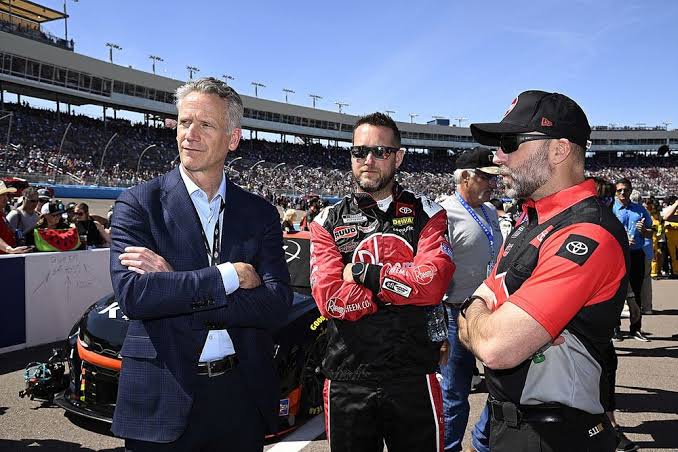NASCAR’s charter system, which has been under intense scrutiny in recent years, is now at the center of a growing conflict between team owners and the sport’s governing body. With the 2024 playoffs underway, NASCAR is pushing for teams to sign a new charter agreement, threatening revocation of charters from those who refuse. The negotiations have been contentious, with some teams, notably 23XI Racing and Front Row Motorsports, still holding out for better terms.
At the heart of the dispute is the financial structure of the sport, particularly how revenue from television deals is distributed among teams. Under the previous charter agreement, NASCAR allocated only 25% of its TV revenue to teams, which has left many struggling to maintain operations. Even larger, more successful teams have been vocal about the need for increased funding to ensure long-term sustainability.
As negotiations came to a head, 13 out of 15 team owners signed a revised agreement just before the midnight deadline. This new deal, which extends the charter system through the 2031 season with a potential seven-year extension, provides some stability, but not without controversy. Dissenting teams like 23XI Racing and Front Row Motorsports argue that the current structure does not address key issues related to revenue distribution and operational costs.
Despite the agreement, tensions remain high, with several team owners feeling coerced into signing a deal they view as unfavorable. The underlying concerns about financial fairness and stability within NASCAR are far from resolved, and teams continue to voice frustration over the pressure tactics used by the sanctioning body.
As the playoffs progress, unresolved charter negotiations continue to cast a shadow over the series. The refusal of some teams to sign the agreement underscores the deeper issues within the sport’s financial model. Both 23XI Racing and Front Row Motorsports have indicated that they are prepared to hold out for more favorable terms, even as NASCAR has hinted at possible legal action should the impasse continue.
Looking ahead, the potential for a broader confrontation looms large. Teams are not just pushing for immediate financial relief but for a more equitable system that ensures the long-term health of the sport. NASCAR’s charter system was originally designed to give teams a sense of ownership and security, but the current tensions suggest that many feel it is no longer serving that purpose effectively.
In the end, NASCAR’s aggressive tactics in charter negotiations may have unintended consequences, possibly sparking legal battles and further disputes over revenue distribution. If a compromise cannot be reached, the integrity of the charter system itself could be at risk, raising important questions about the future of the sport.
For now, as NASCAR’s top teams focus on the playoff races, the ongoing negotiations behind the scenes are a reminder of the financial and operational challenges that continue to plague the sport. Only time will tell if NASCAR and its teams can find common ground and secure a more sustainable future for all involved.
